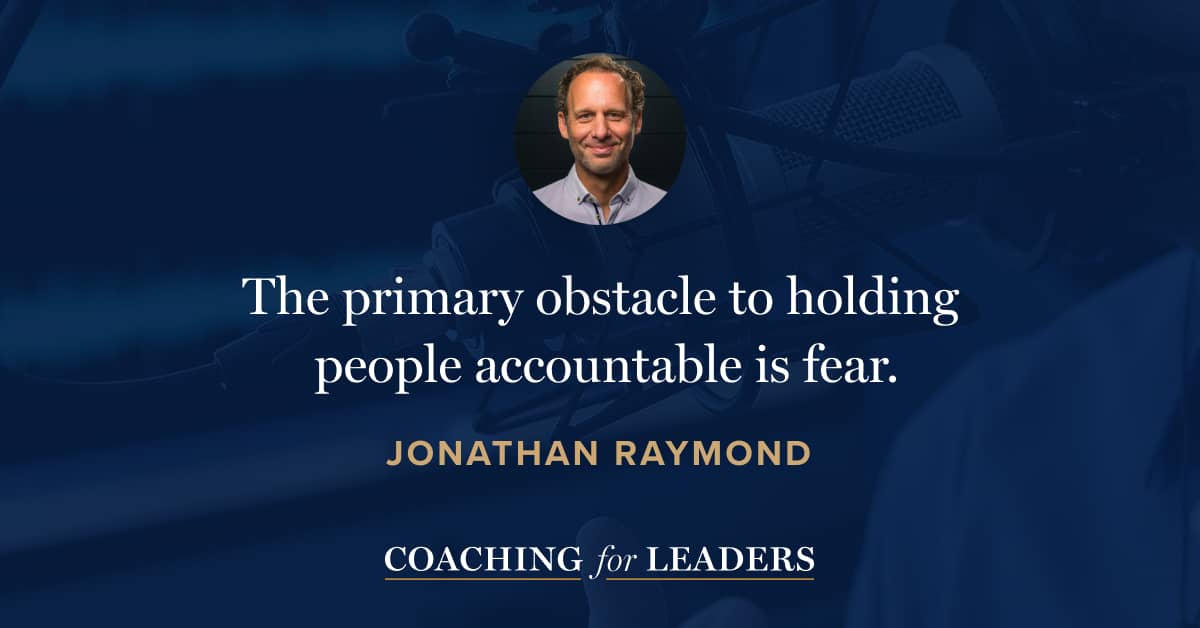Jonathan Raymond: Good Authority
Jonathan Raymond is the founder of Refound and Ren AI. He helps leaders make work a better place, one conversation at a time. He’s the author of the book Good Authority: How to Become the Leader Your Team Is Waiting for and hosts the podcast of the same name. He's also the creator of The Accountability Dial, used by many in our community to support healthy accountability in their organizations.
With all the tools and technology we have access to, it’s so easy to fall in the trap of mostly being transactional. Yet, leadership is at its best when it elevates above the transaction and builds the broader relationship. In this conversation, Jonathan and I discuss how to make that shift.
Key Points
- While the pandemic helped us shift in some helpful ways, it also created an environment where leaders don’t always feel safe with healthy accountability.
- The most healthy conversations have consequences if change does not happen.
- The primary obstacle to holding people accountable is fear. Leaders will find times when then not able to defend themselves.
- Having access to too much detail is a recipe for micromanagement. The best feedback moves away from transitional and towards relational.
- Find places of retreat to spend unstructured, non-transactional time.
- Don’t let the perfect get in the way of the good. Hold people accountable for the qualities of leadership, not the outcomes.
Resources Mentioned
- Ren AI: a platform of AI-powered tools built on the Good Authority methodology
- Good Authority: How to Become the Leader Your Team Is Waiting For* by Jonathan Raymond
Related Episodes
- Five Steps to Hold People Accountable, with Jonathan Raymond (episode 306)
- How to Give Feedback, with Russ Laraway (episode 583)
- How to Connect with People Better, with Charles Duhigg (episode 670)
Discover More
Activate your free membership for full access to the entire library of interviews since 2011, searchable by topic. To accelerate your learning, uncover more inside Coaching for Leaders Plus.





